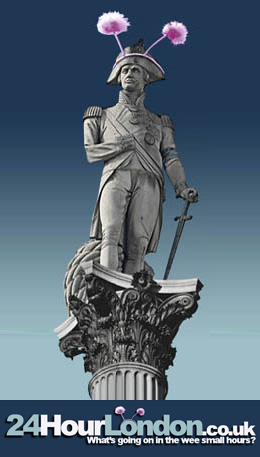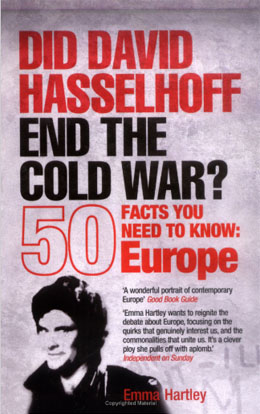Last Monday he hosted the first shin-dig of the revivified all-party folk arts group at the House of Commons, in the Jubilee Room - shades of Cluedo here - featuring beer and crisps, with Katzenjammer, Lisa Knapp and Jack Harris for entertainment.
And he's got form with with folk music. "I was in a band called Cadlan in the late 80s and early 90s. We were a Welsh folk dance group - the equivalent of a ceilidh band, only in Wales it's known as Twmpath - and I played guitar. We were teachers with full-time jobs but we toured around south Wales, evenings and weekends. We called a halt to it when one of our members, Graham Simpson, who was a brilliant mandolin and banjo player as well as an all-round good egg, was knocked off his bicycle and killed."
These days he plays with MP4 - see what they did there? - a cross-party rock band of four MPs, including Pete Wishart, formerly of Runrig now of the Scots Nats, who were gigging last weekend at the Pocklington Arts Centre in Yorkshire.
"The all-party folk group was kicked off, I think, by John Battle," Brennan said. "But Alan Keen took it on: he was a very big folk fan and was responsible for getting a couple of events on in the Commons. He had Ralph McTell and Tom Paxton in.
"But sadly Alan died of cancer last year. I'd met him at the folk awards in London in 2010 while he was having his chemo and when he passed away I thought I should keep the group going.
"So it was the first event the other night. My thoughts were that if we had a couple of events a year to showcase folk and acoustic based music - trad or contemporary - we could interest other MPs in some of the issues surrounding folk and get them to mingle with people from the folk music world.
"What I'd like to do is develop a little manifesto of things that the folk world would like us to do to support the sector: aims that people can agree on. So far I've been liaising mainly with the English Folk Dance and Song Society (EFDSS) and Trac in Wales."
Brennan had a success with the all-party muscular dystrophy group a while back, as a result of which he got £3 million from Whitehall for much-needed treatment.
So how did he end up with the Norwegian all-girl band Katzenjammer at the first event? "They were doing a gig in Hyde Park for Radio 2 and thought 'Why not get them in?' Along with some British folk artists, it could be part of the antidote to The X Factor."
He singles out The Decembrists and their singer Colin Meloy as his favourite musicians right now.
"Anyone who wants to get in touch with me about folk-related issues can email me on brennank@parliament.uk or write to me at the House of Commons," he said. He's also on Twitter, where his handle is @KevinBrennanMP
I'd say that England and Wales have a lot to learn from Scotland on the subject of showcasing their music to the rest of the world, potentially as an export. Celtic Connections in Glasgow works very well, with the support of the Scottish government, as a Scottish music event that draws music lovers and music industry folk from all over the world.
Why not start there?
Throw in webstreaming by the Denscombes and you've got a potentially world-beating phenomenon.
And to make the all-party folk arts group the destination parliamentary event of an evening, form an alliance with the all-party parliamentary beer group and marry it to some fine ales and ciders, and possibly a hog roast. It's how most of us appreciate our folk.
* If you'd like to receive posts from this blog in your Facebook newsfeed you could *like* its Facebook page. You could also follow me on Twitter @emma1hartley




Would it sound too cynical if I said the best way the government could help folk music is by opposing it?
ReplyDeleteIf David Cameron and Nick Clegg came out and said "we despise folk music and all it represents" expect the top 40 the next week to include Show of Hands, Levellers, Oysterband...
Good to see some Labour MPs from Wales support folk music. Hasn't always been the case. Anyone remember Kim Howells?
ReplyDeleteEmma, you end by saying: "I'd say that England and Wales have a lot to learn from Scotland on the subject of showcasing their music to the rest of the world, potentially as an export. Celtic Connections in Glasgow works very well, with the support of the Scottish government, as a Scottish music event that draws music lovers and music industry folk from all over the world."
I'd agree to an extent. English folk is generally seen as less 'windswept and romantic' than Celtic (even though quite a few songs and tunes claimed as Celtic turn out to be English!). It's the old thing about England being the dominant country. The Celtic nations were the oppressed (at least culturally) nations, and everyone likes the underdog.
Also, as soon as someone attaches the label "English" to something they are suspected of having nationalistic tendencies - something that's permissible in Scotland and Wales but not in England.
Fortunately, all British folk music is on the up: Scottish, Welsh and English, and we should all work together to promote all of it.
Meanwhile, I sense that the idea of "Celtic music" has lost some of its cache due to misuse of the term and changing fashions. Even Celtic Connections is breaking down the barriers and allowing English performers a stage now - and not before time!
Hi Phil. One of the reasons why there are going to be loads of English bands at Celtic Connections this year is because England is the featured "foreign country"!
ReplyDeleteHowever, English music doesn't have to be the same as Scottish music to be as well marketed as Scottish music is at Celtic Connections. Which is just as well, really, because its never going to be the same. It's very much a question of whether English music has the confidence to be itself on an international stage.
I strongly believe we've got some potentially world-beating bands that just don't get the exposure they deserve for a number of reasons, including the one you've just mentioned about fearing that something English will be viewed as "oppressive".
I think this fear is groundless. It's really difficult to be oppressed by someone's music. And anyway, when we were an imperial power Scotland was very much a part of the Union - as it still is. Officers, engineers and bureaucrats: Scotland did more than its share. We can't change history but there's no point mythologising it.
More importantly, music has the capacity to overcome national differences and I'd like to see English and Welsh folk and roots music get the wider audience it deserves. Stuff NME, The Guardian's teenager-centric music pages and manufactured bands off the telly. There are millions of people all over the world who'd love Seth Lakeman, Show of Hands, Bellowhead and Jamie Smith's Mabon (for example) if they ever got a chance to hear them :-)
Who's with me? *paints face blue and strikes Braveheart style pose*
This comment has been removed by the author.
ReplyDeleteWell, you're preaching to the choir, and I'm already doing just what you suggest - helping to spread English (and Welsh, and Scottish) folk music around the world, via the power of podcasting.
ReplyDeleteBut, like it or not, the image of the English is not as romantic as that of the Scots and to many non-English people it is less appealing. For example, while many Americans claim Scottish heritage, far fewer seem to celebrate their English background - probably because they see England rather than Britain (including Scotland) as the old colonial power. We're still seen as the baddies, while the Scots get to be the Bravehearts.
My hat decayed to every person that's absent now helping and for the relief that are manufacturing it confident designed for them to be at furnish.
ReplyDeletepsychology dissertation structure